Conventional petroleum-based dye are bad for the environment.
Once you know that clothing dyes are derived from oil (yes, that includes the dyes used on other organic clothing), there are some obvious benefits of using plant dyes that jump out:
1. Reducing our dependence on oil - the clothing industry uses 70 million tons of oil each year to make synthetic dyes and fibers. Reducing our use of synthetic dyes could take a huge chunk out of that.
2. Reducing pollution - Converting oil into dyes creates a lot of pollution. In fact, the fashion industry is the second largest polluter in the world, second only to oil itself. Converting oil into various colored dyes uses and creates hundreds of toxic chemicals that are put into our environment every year. Plant dyes are, well, from plants. They are a normal and integral part of the environment. In fact, when plants grow they remove excess carbon and toxins from the air, helping reverse the effects of global climate change.
So, petroleum-based dyes are clearly bad for the environment, but did you know they are also bad for you?
The United States National Institutes of Health ran a study in 1996 finding that chemicals in clothing "can transfer from fabric into and through human skin to cause toxic effects," leading to "medical problems such as dermatitis and death." (See article here.) Death? Really? Calling death a "problem" seems like a bit of an understatement. And this study has been around since 1996? Why isn't anyone doing anything? - Sorry, that was my inner monologue from when I decided to create Sustain.
So, yes, the chemicals from your clothing can absorb into your skin. Now think about what you have been wearing your entire life. Polyester, acrylic, all sorts of petroleum-based fibers dyed with more chemicals made from petroleum. And you have been wearing, sleeping, and sweating in these clothes everyday of your life and almost every hour of your life. While no comprehensive studies have been done on the long-term effects of wearing these chemicals (at least that I have found), more and more studies are showing, like the National Institute of Health study above, that these chemicals have definite effects on your health, even in the short term (see, for example, here, here, here and for an article on increased rates of cancer among textile workers, see here).
So in comes plant dyes.
Plant dyes are actually not a new thing. In fact, many of the plant dyes Sustain uses have been used for thousands of years. That's right thousands. That's actually one of the best things about them. Natural plant dyes like indigo, madder root and fusticwood have been safely used for incredibly long periods of time without adverse effects. Petroleum-based dyes have been around for only about 50 years and there are tons of studies showing how harmful they are.
The other commonly used dyes Sustain used are edible. Dyes from plants like pomegranates, rhubarb (ummm, pie) and avocados are all foods found in the local grocery store.
And many of these plants have antioxidants and vitamins in them that are actually good for you. Here are a few of the benefits of the plants we use:
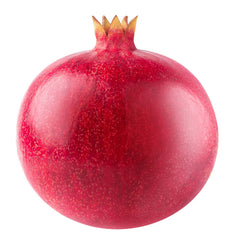
Pomegranate Peels
Pomegranate peels are rich in vitamins and antioxidants, even more than the juicy pomegranate seeds. The peels are anti-inflammatory, anti-microbial and are consistently used in beauty products for maintaining healthy skin.
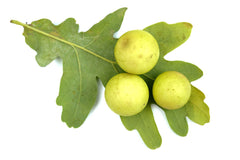
Oak Galls
Oak has natural antiseptic and anti-inflammatory properties that help reduce skin irritation.
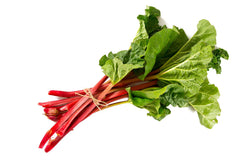
Rhubarb
Rhubarb is high in vitamins A, C, E and K and various minerals that are good for you. Because rhubarb is high in antioxidants (like vitamin A), it has been used in skin care products for anti-aging. Rhubarb is also antimicrobial and has been used to fight skin infections.
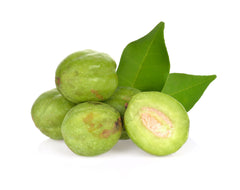
Myrobalan
The dried fruits of myrobalan trees used for dyeing are commonly used in ayurvedic and traditional Tibetan medicine. Because myrobalan is very high in antoxidants, it has been used to protect against various age and heart related diseases.
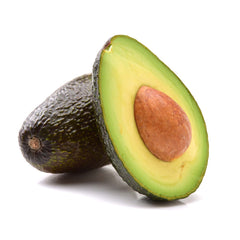
Avocado Skins & Seeds
The skins and in particular the seeds of avocados are incredibly high in antioxidants, vitamins and minerals. The antioxidants in the seeds have been linked to reducing inflammatory conditions, and avocado seed extracts have been used topically to treat blemishes and relieve muscle and joint pain. The seeds also have insecticidal, fungicidal, and anti-microbial properties.
Wouldn't you rather be wearing clothing dyed with plants chalk full of goodness than clothing dyed with petroleum-based toxins?

